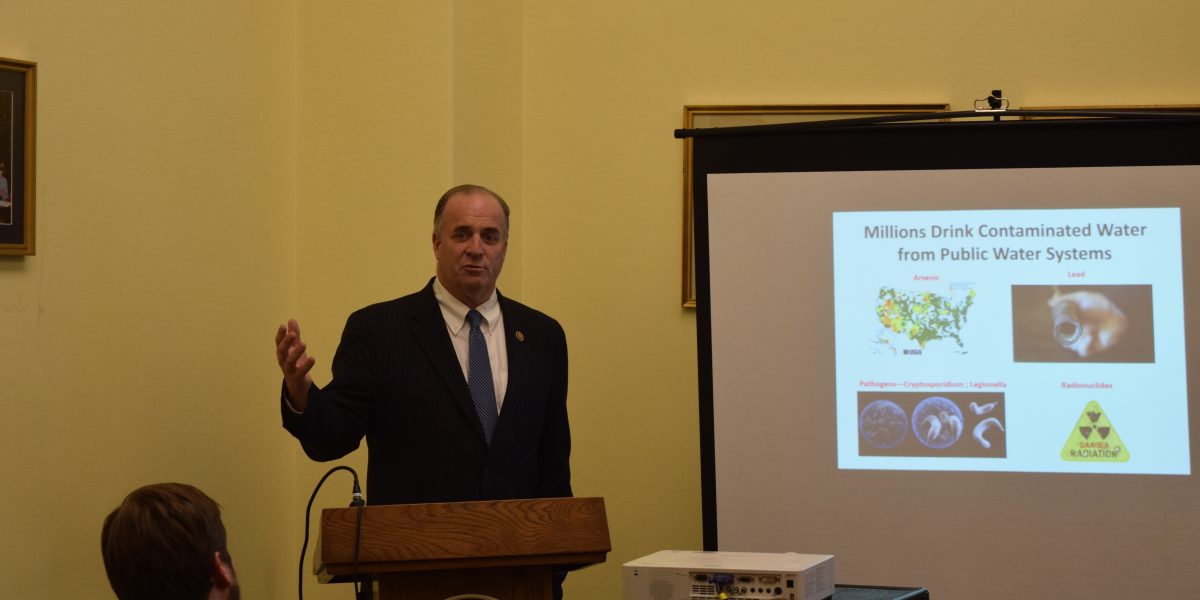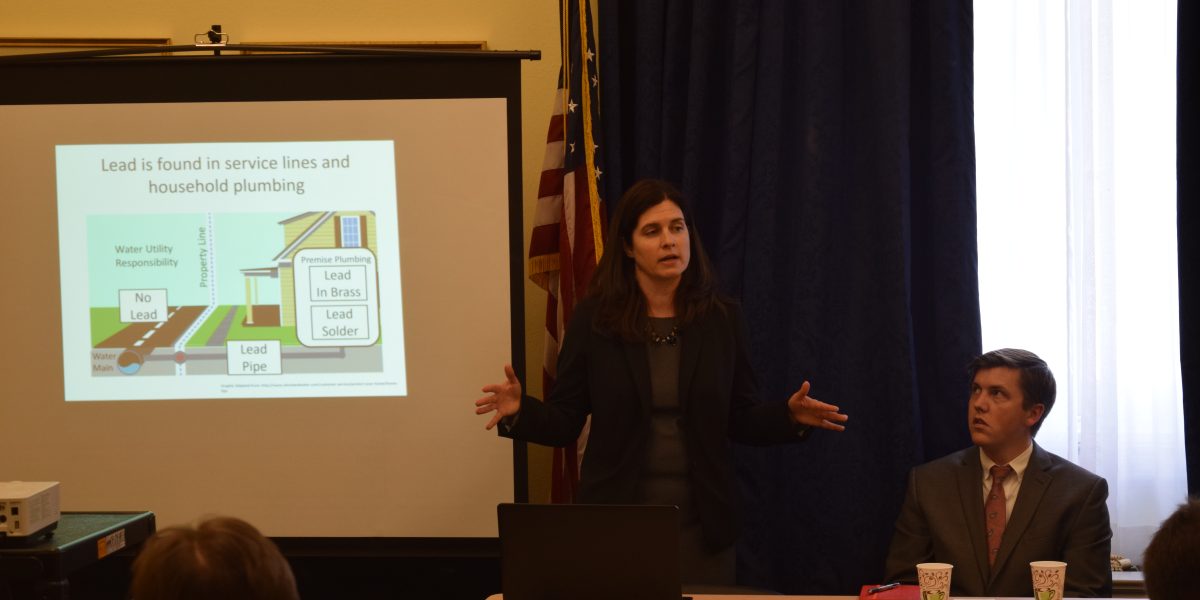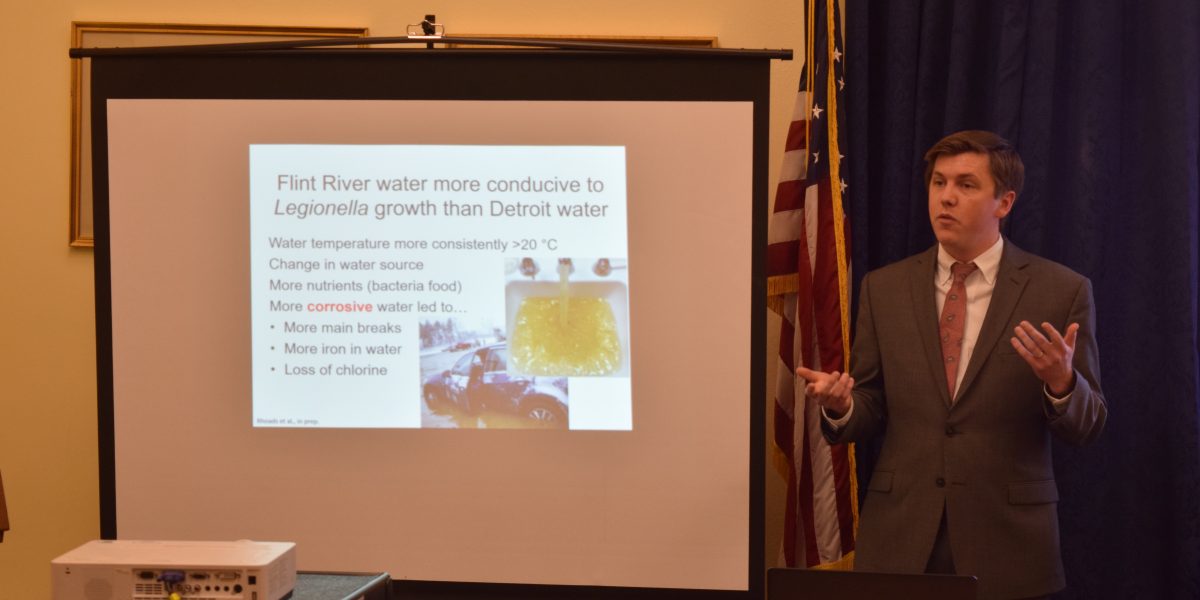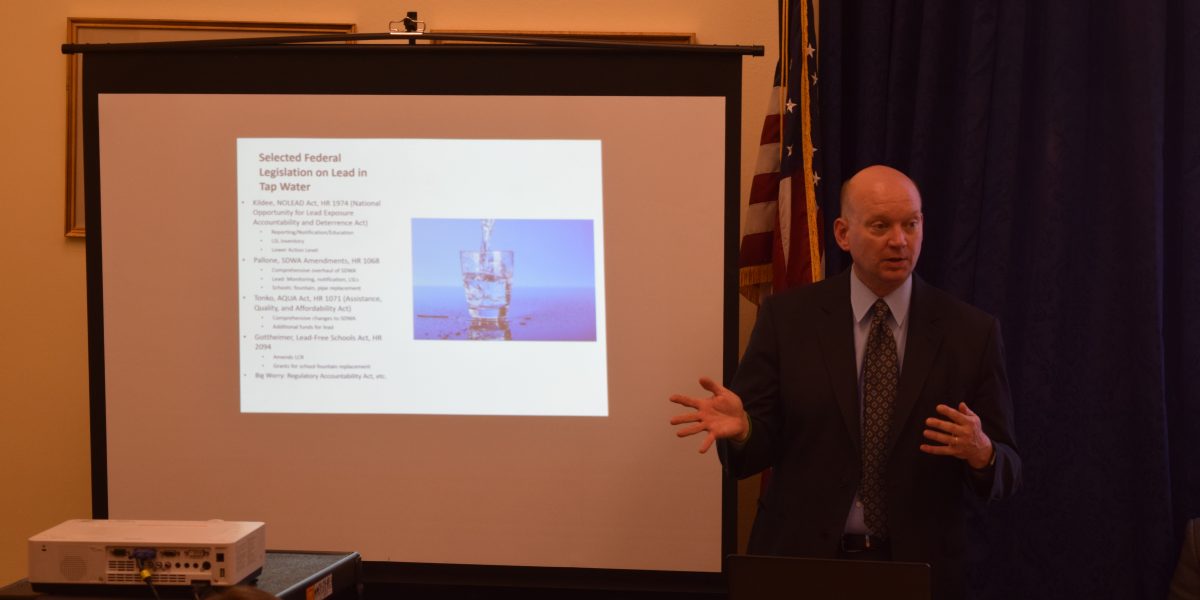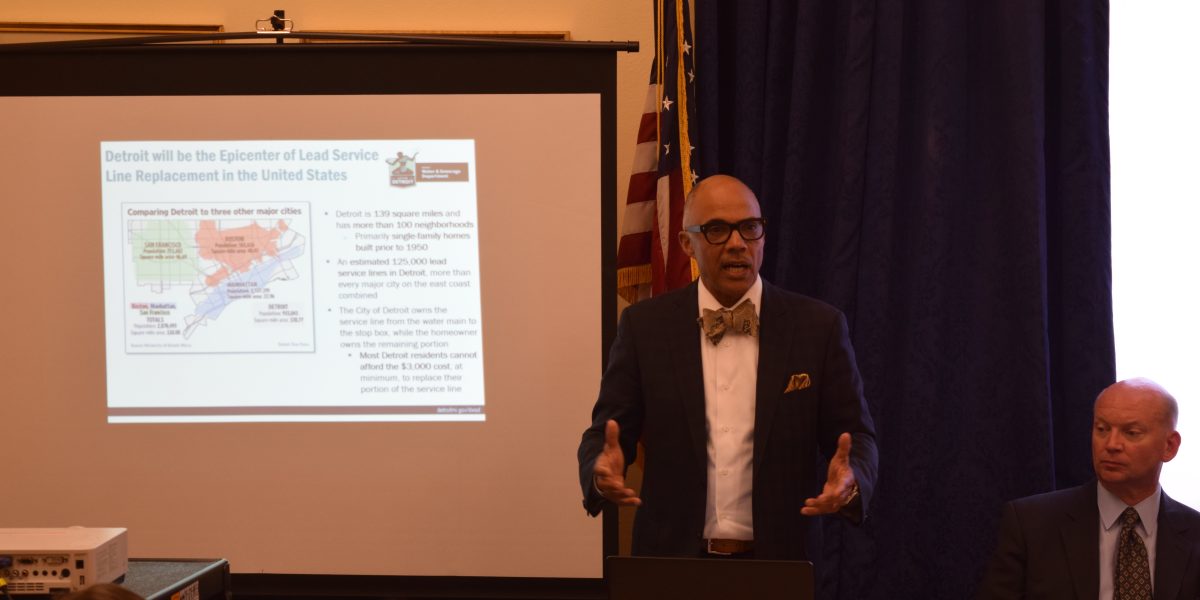The Flint water crisis and the weaknesses in U.S. water quality regulation and enforcement that it revealed was the topic of a Capitol Hill briefing by the Northeast-Midwest Institute’s Safe Drinking Water Research and Policy Program on May 3. The briefing, entitled The Lead Crisis and Safe Drinking Water: Lessons from Flint and Other Drinking Water Emergencies, was attended by more than forty stakeholders and Congressional staff, and was an opportunity to hear directly from experts working on water quality issues in Flint and Detroit.
Congressman Dan Kildee (MI-05), whose district includes the City of Flint, gave remarks on the seriousness of the tragedy in Flint and the importance of applying the lessons learned to other cities at risk of lead contamination.
Elin Betanzo, Director of NEMWI’s Safe Drinking Water Research and Policy Program, offered a history of U.S. lead in water crises and an overview of the EPA’s Lead and Copper Rule. The briefing also featured a panel of other prominent water quality experts:
- William Rhoads, PhD, Virginia Tech
Dr. Rhoads presented on the threat of Legionella bacteria in communities with degraded water infrastructure, as well as possible regulations that could help prevent Legionnaire’s disease outbreaks.
- Erik D. Olson, Director, Health Program, Natural Resources Defense Council
Mr. Olson presented on gaps and lapses in water quality testing and enforcement and the shortcomings of the Lead and Copper Rule.
- Gary A. Brown, Director, Detroit Water and Sewerage Department
Mr. Brown presented on the many challenges facing cities seeking to overhaul their lead service lines.
The presentation slides used during the briefing can be found here.
For an audio recording of the briefing, click here.
